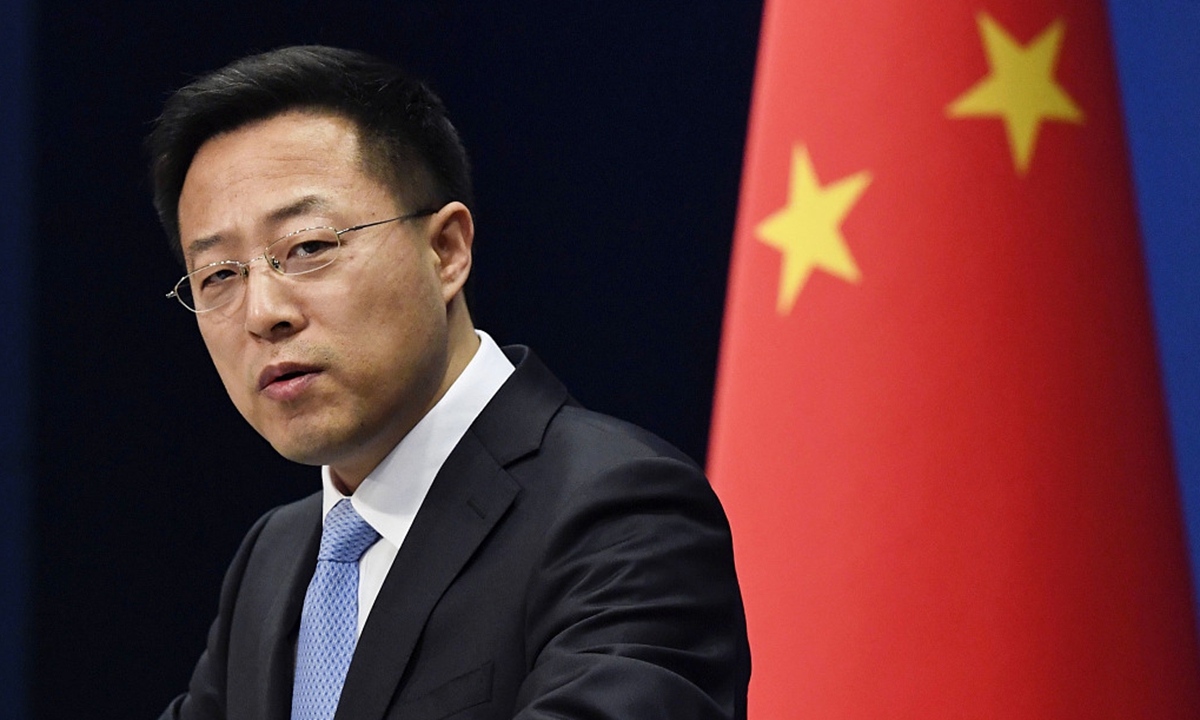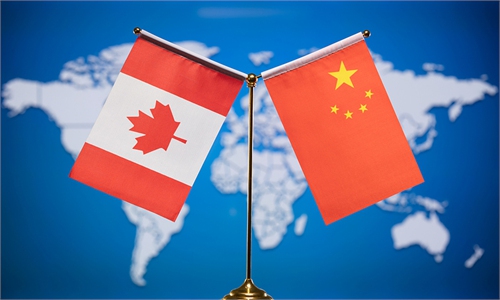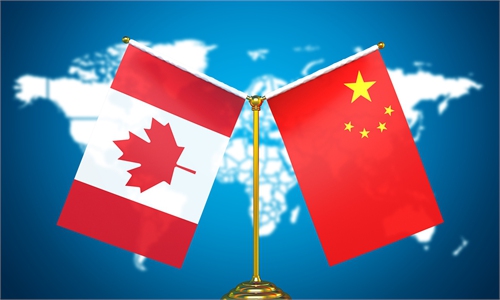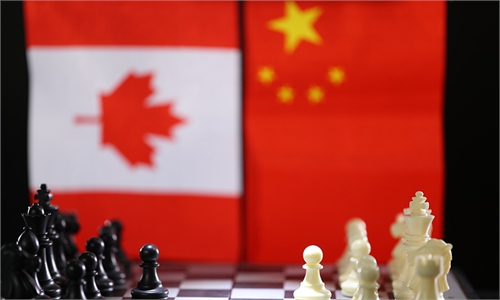Not interested: China responds to Trudeau's remarks of 'interfering in Canadian election'

Zhao Lijian Photo: VCG
China is not interested in Canada's internal affairs, said a spokesperson for the Chinese Foreign Ministry on Tuesday, urging Canada to stop making remarks that are detrimental to bilateral ties. The response refuted a recent accusation by Canadian Prime Minister Justin Trudeau who claimed China and other nations are playing "aggressive games" with so-called democracies.
Trudeau's wanton accusations expose that Ottawa, under unprecedented pressure from Washington, is stepping up its move to follow the "Indo-Pacific Strategy" which aims to contain China's peaceful development as Washington is getting more worried about the growing disunity of its allies, Chinese observers pointed out. They warned that such irresponsible remarks by the Canadian prime minister would harm China-Canada relations.
Bilateral ties can only be built on the basis of mutual respect, equality and mutual benefit, and China-Canada relations are no exception, Foreign Ministry spokesperson Zhao Lijian said at a regular press conference on Tuesday.
Zhao's remarks come after Trudeau on Monday responded to a Global News investigation which claimed it "detailed alleged efforts by China to fund a clandestine network of at least 11 federal candidates who ran in the 2019 election, among other allegations of election interference in that campaign."
"Unfortunately, we're seeing countries, state actors from around the world, whether it's China or others, are continuing to play aggressive games with our institutions, with our democracies," Trudeau told reporters in Montreal.
Canadian media outlet Global News recently claimed that "Beijing is allegedly targeting Canada with a vast campaign of foreign interference."
Such accusations are old tricks peddled by some Western countries, which aim to make trouble out of nothing, Yao Peng, deputy secretary-general of the Canadian Studies Center of the Chinese Academy of Social Sciences, told the Global Times on Tuesday.
Canada appears ready to accelerate its move to follow the US-led "Indo-Pacific Strategy" and getting tougher toward China.
On November 5, Canadian media outlet CBC revealed that Canada's "long-awaited strategy" for dealing with China and the broader Indo-Pacific region might finally be released within days.
CBC said it is no accident that Canadian ministers have been traveling to Washington lately to talk about trading more with allies or even decoupling with China. Although details of the strategy are not yet clear, CBC has suggested that as a whole, it is to "look to Washington."
If so, it is disappointing and regrettable, Chinese observers said.
The US is worried about the disunity of its alliance system especially the Five Eyes, so it has doubled down to pressure its allies including Canada and Australia, a Beijing-based expert on international relations, who requested anonymity, told the Global Times on Tuesday.
The anonymous expert noted that Washington's influence over Ottawa has been around for a long time.
Citing a typical case in January 2019 when Trudeau fired his ambassador to China John McCallum who embarrassed Trudeau by saying Huawei CFO Meng Wanzhou could make a strong argument against being sent to the US, the anonymous expert said the Trudeau administration has nearly lost its independence as it looks to Washington.
The forthcoming strategy document is nothing more than continuing to follow the US' lead on containing China and making troubles on diplomacy, human rights, the South China Sea issues and China-Canada economic and trade relations, Yao said.
Yao said Canada is likely to further prevent trade and industrial chain cooperation with China in key areas such as energy, strategic resources, high technology and biomedicine. This will undoubtedly further damage the fragile China-Canada relations, as well as harm Canada's own economic interests.
In fact, Canada is well aware that the deterioration of relations with its second largest trading partner is hugely damaging to its own interests. But as the US has exerted unprecedented pressure on its allies to keep its alliance system from falling apart, Ottawa has no other choice but to follow Washington's clamors for getting tougher on Beijing.
China has always treated Canada as a trading partner without having done anything to violate Canada's interests. The two countries used to enjoy a relatively good relationship for a long time. But in recent years, under the increasing pressure and agitation from Washington, Canada has completely taken the US' side. As a result, friction and even conflicts have gradually replaced cooperation and dialogue in China-Canada relations.
Lü Xiang, a research fellow at the Chinese Academy of Social Sciences, believes that in Washington's strategic competition with China, which the former has regarded as its top mission, the price for countries like Canada to become a pawn of any party will be extremely costly.
Instead of blindly following the US to blame China, politicians like Trudeau should ask themselves what really poses a threat to Western democracy. Without genuine self-reflection, shifting the blame to others will never help save the already shattering Western democracy.




